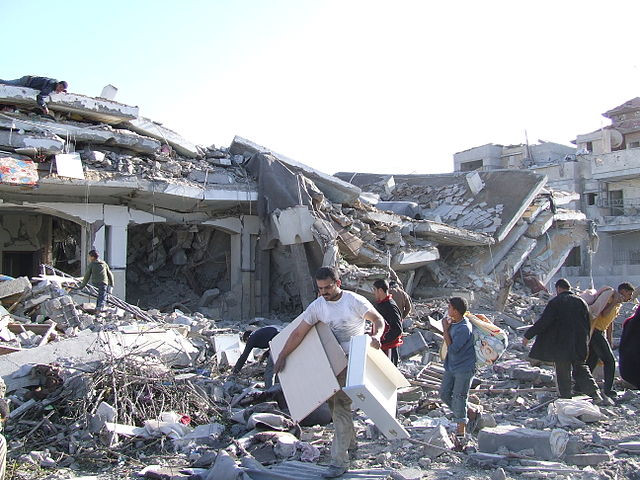Israel resumed its military offensive in Gaza on Wednesday, launching a series of targeted airstrikes that killed at least 13 people, including women and children, according to Gaza health officials and humanitarian agencies. The Israeli Defense Forces (IDF) stated that the latest attacks were aimed at Hamas military positions and vessels, escalating tensions in the region following the breakdown of a fragile ceasefire.
Israeli Prime Minister Benjamin Netanyahu declared, "This is just the beginning," during a televised statement late Tuesday, reaffirming Israel's objective to dismantle Hamas and retrieve hostages taken during the October 2023 incursion. "Hamas has already felt the strength of our arm in the past 24 hours," Netanyahu added. "Future negotiations with Hamas will take place only under fire."
Gaza's health officials reported that two civilians were killed and five others injured when an Israeli drone struck a tent near the al-Mawasi humanitarian zone. Further casualties included a woman and child north of Khan Younis, and four others killed in Gaza City. The strikes overnight follow a heavier bombardment early Tuesday that, according to Gaza's Hamas-run health ministry, killed more than 400 people.
Mahmud Bassal, spokesperson for Gaza's civil defense agency, placed the latest death toll at 13, citing fatalities across various locations, including Khan Younis and Gaza City's Sabra suburb. The IDF confirmed targeting what it described as a "Hamas military site in northern Gaza where preparations were being made to fire projectiles," as well as several Hamas-controlled vessels.
Israel issued new evacuation orders affecting roughly 100,000 Palestinians in northern Gaza, directing them to move south and west away from what it termed "dangerous combat zones," suggesting potential ground operations.
The renewed offensive comes after negotiations collapsed over extending the three-phase ceasefire agreement brokered under former U.S. President Joe Biden. Israel accused Hamas of rejecting proposals for a 30- to 60-day extension of the first phase, which expired earlier this month. Hamas, however, insists it remains committed to the original deal and blames Israel for refusing to enter discussions on the agreement's second phase, which would have involved Israeli troop withdrawals from Gaza.
"Hamas has not closed the door on negotiations, but we insist there is no need for new agreements," said Taher al-Nunu, a Hamas official. He further urged the international community to "take urgent action" to halt the renewed violence, accusing Israel of "violating the ceasefire agreement it signed."
Egypt, one of the mediators in the talks, condemned Israel's latest strikes as a "blatant" violation of the ceasefire.
The humanitarian situation in Gaza continues to deteriorate amid the reimposed blockade and halted aid shipments. Tom Fletcher, the UN's under-secretary-general for humanitarian affairs, described the situation as dire, stating, "For two weeks now, our food supplies are rotting at the borders, the medicines are expiring, the water's been cut off, the power's been cut off - and all that to punish civilians further." He warned the UN Security Council that "the intensity of the killings is now off the scale."
Critics have also pointed to Netanyahu's political motives, accusing him of reigniting hostilities to shore up his coalition ahead of a critical budget vote in parliament. Tens of thousands of Israelis protested against the offensive's resumption, and lawmakers have called for a review after police forcibly dispersed demonstrators.
The Israeli government, meanwhile, has moved to reappoint far-right politician Itamar Ben-Gvir as national security minister. Ben-Gvir resigned earlier over dissatisfaction with the January ceasefire but stated he would return if the military campaign resumed. Amichai Eliyahu, another far-right minister who had previously been suspended, also rejoined Netanyahu's coalition.
Adding to regional instability, air raid sirens sounded across southern Israel Wednesday night following a missile launch from Yemen. The IDF confirmed its air defense systems successfully intercepted the missile, believed to have been launched by the Iran-backed Houthi militia, which has intensified attacks since the Gaza conflict erupted.
Hamas confirmed that several of its senior figures, including its de facto head of government Essam a-Da'lees, were killed during Tuesday's heavy strikes. Islamic Jihad also reported the death of a prominent spokesperson. However, many of the casualties remain civilians, with dozens of children believed to be among the dead.




